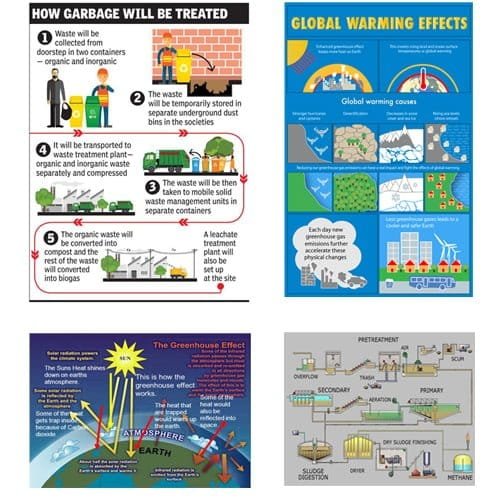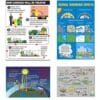- English laminated each.
| Part No. | Type | Size (cm) |
| 9880-A | Garbage management | 50 x 75 |
| 9880-B | Green house effect | 50 x 75 |
| 9880-C | Global warming | 50 x 75 |
| 9880-D | Sewage treatment | 50 x 75 |
The uses of environmental science include:
- Ecological Research:
- Study ecosystems, biodiversity, and ecological processes to understand environmental dynamics.
- Pollution Monitoring:
- Monitor and analyze pollutants in air, water, and soil to assess environmental quality.
- Natural Resource Management:
- Evaluate and manage natural resources sustainably, considering conservation and responsible use.
- Climate Change Studies:
- Investigate climate patterns, global warming, and the impacts of climate change on ecosystems.
- Renewable Energy Research:
- Explore and develop sustainable energy sources to reduce environmental impact.
- Waste Management Strategies:
- Develop strategies for proper waste disposal, recycling, and waste reduction.
- Environmental Impact Assessments:
- Assess the environmental consequences of human activities and development projects.
- Conservation Biology:
- Study and implement strategies for the conservation of endangered species and ecosystems.
- Environmental Education:
- Educate the public about environmental issues, conservation practices, and sustainable living.
- Policy Development:
- Inform policymakers to develop and implement regulations for environmental protection.
- Water Resource Management:
- Study and manage water resources, addressing issues like water quality and scarcity.
- Human Health and Environment Connection:
- Investigate the links between environmental factors and human health, promoting public health awareness.








Reviews
There are no reviews yet.